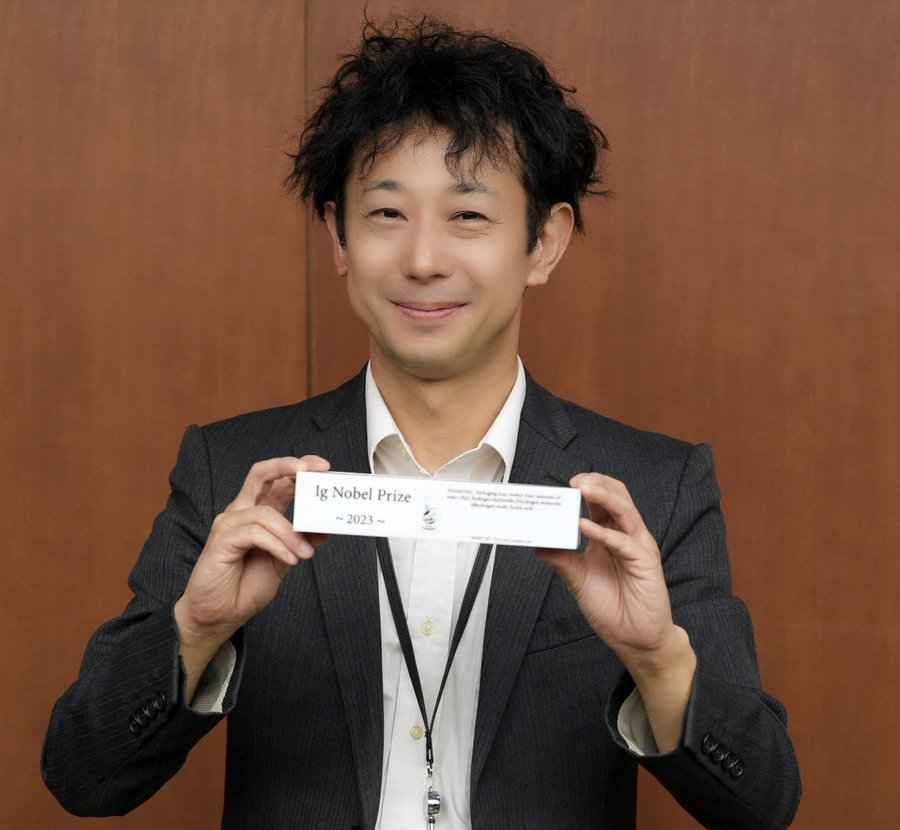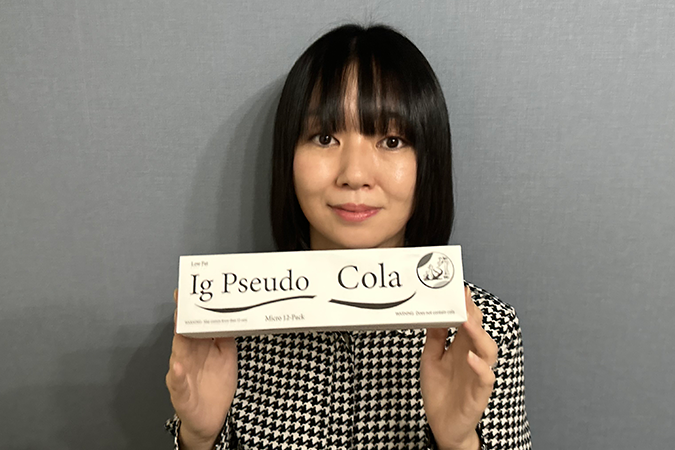



NEW YORK: Japanese researchers Homei Miyashita and Hiromi Nakamura received this year’s Ig Nobel Prize for nutrition for their research that has led to the development of tableware that employ electric stimulation to allow users to sense salty taste strongly.
An Ig Nobel Prize, a spoof of the Nobel Prize that honors humorous but creative research, has been awarded to any researcher from Japan for the 17th consecutive year. Starting in 1991, 10 Ig Nobel prizes have been awarded every year.
When a weak electric current flows through the tongue, such as when licking a dry cell, a person feels a unique taste. Such “electric taste” has been used to test for taste disorders.
Miyashita, a 47-year-old professor at Meiji University in Tokyo, and Nakamura, a 37-year-old project associate professor at the University of Tokyo, have jointly conducted the research on electric taste since Nakamura was a graduate student at Meiji.
The researchers published a paper in 2011 that said the taste of food and drink changes with electrified chopsticks and straws. They later developed technology that uses electric stimulation to allow people to feel a strong taste even with dishes that do not use salt.
Using the technology, Miyashita and Japanese beverage maker Kirin Holdings Co. jointly developed tableware that can boost salty taste for release later this year. Nakamura devised a full-course meal featuring salt-free dishes designed to be eaten with an electric taste fork.
Miyashita said the research to examine the relationship between electric taste and changes in food and drink tastes was the first of its kind in the world as of 2011.
“I’m really grateful that the light has been shed on the research we’ve been doing for 13 years,” Miyashita told Jiji Press with a smile, noting that the 2011 paper prompted related studies all over the world.
“I’m glad that the paper, which marked the beginning of our research, has been appreciated,” Nakamura said.
The two researchers plan to use artificial intelligence technology to explore new food experiences, such as by creating dishes depicted in manga.
JIJI Press